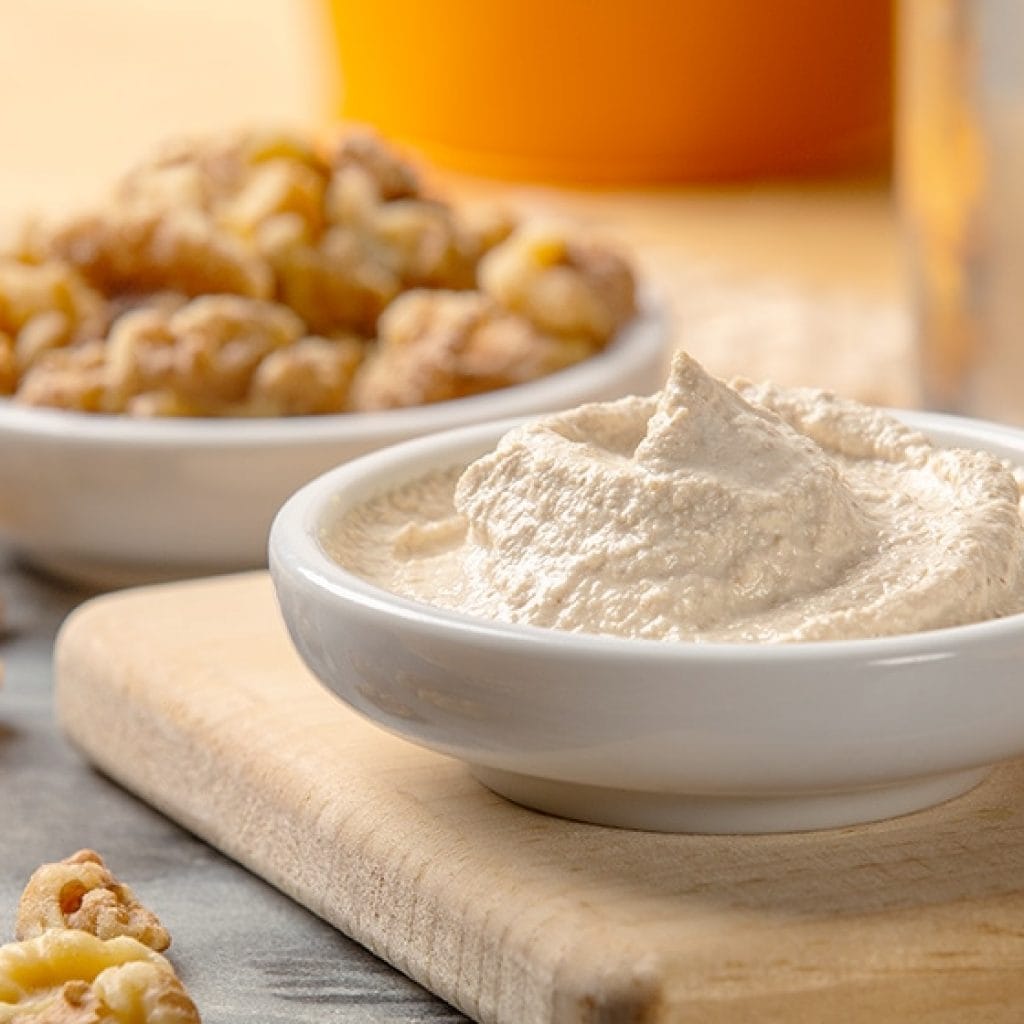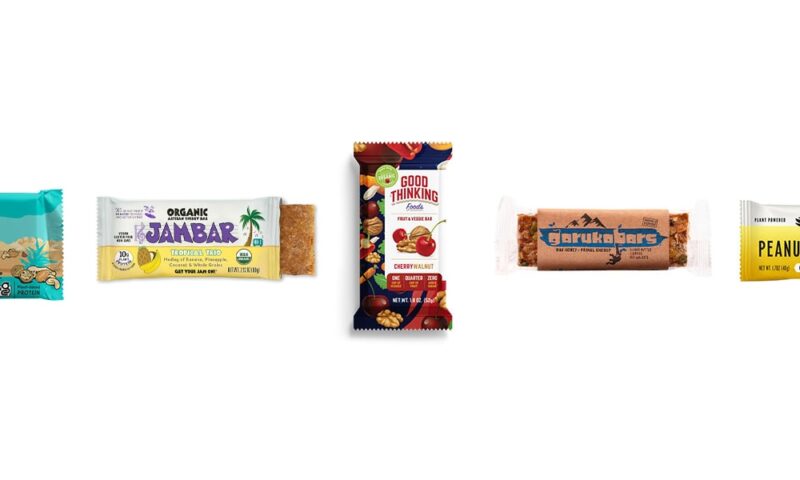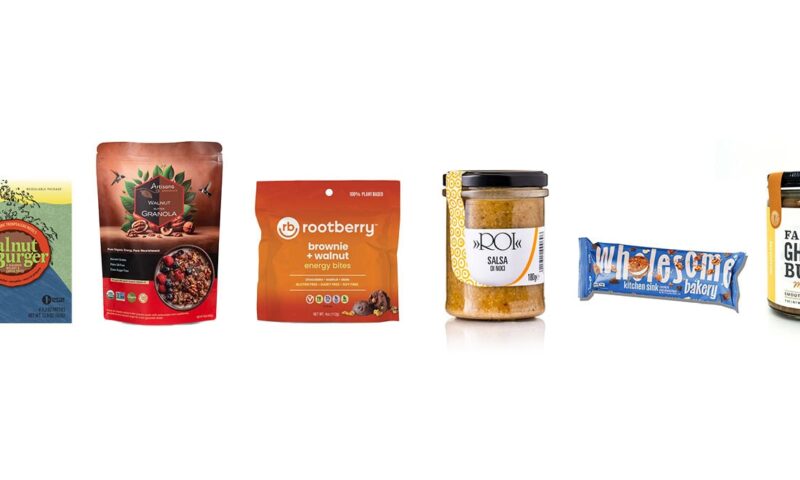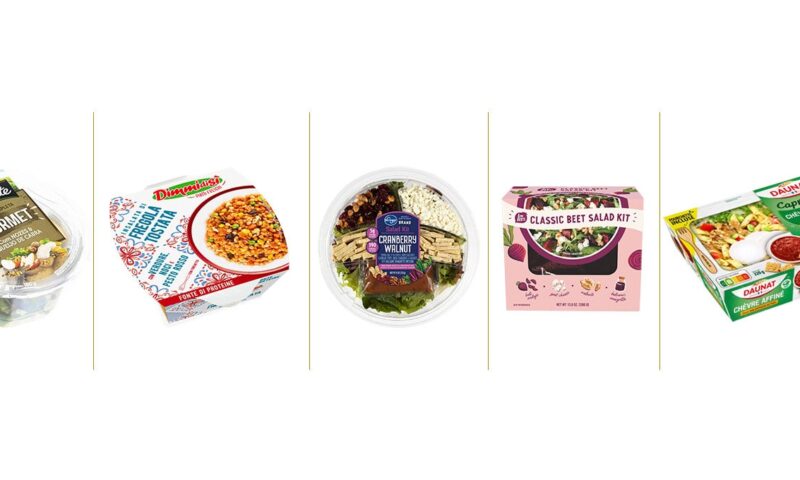As plant-forward trends reach global phenomenon status, their rising mainstream appeal is driving expansion into different categories and accelerating the demand for new formats and clean-ingredient alternatives. Health-conscious consumers are often skeptical of lab-grown substances proliferating in the industry today. They are seeking natural plant-based proteins that offer health benefits, such as walnuts.
Recent trend reports suggest more and more consumers are looking for food items using nutritious, clean-label ingredients, free from preservatives and additives, and offering a higher degree of transparency. The next generation of plant-based alternatives must deliver across all areas:
- Innova Market Insights recently named clean label and transparency in its Top Ten Trends for 2021.
- In the 2021 Kerry Global Taste Chart, walnuts are listed as the number one ingredient for meat alternatives.
- Flavor & The Menu magazine listed Plant-Based Dairy Alternatives as one of the top 10 trends in 2021, featuring a California walnut cream “ricotta.”
Walnuts, the Go-To Plant-Based Ingredient
California walnuts provide a wholesome approach to plant-forward alternative eating. They deliver nutritious, plant-based, clean-label menu items and products that are versatile, easy to use and taste great. Due to their subtle nuttiness and exceptional texture, walnuts have the opportunity to play a starring role in the next wave of plant-forward alternatives.
- In recent months, the media and influencers have listed walnuts as a noteworthy plant-based ingredient in meat and dairy alternatives to watch out for:
Walnut Meat Alternative
Walnuts can mimic ingredients such as ground beef with a quick pulse or chop without any excess additives and fillers. Blend a 2:1 ratio of California walnuts and a legume of choice (i.e., beans, chickpeas, other pulses) or roasted vegetables in a food processor until a loose crumble forms. Add natural spices, seasonings, herbs and sauces to get to the desired flavor profile. Then form it into patties (i.e., veggie burger), ball it up or keep it as a crumble to use in a variety of plant-forward menu items replacing any type of ground meat.
Walnut Dairy Alternative
Walnuts can also create a velvety dairy-free cream with blending two simple ingredients: water and raw walnuts. The walnut cream is an excellent dairy- and gluten-free alternative that can be used in both savory and sweet applications.
Nutritious Indulgence
Ten years ago, consumers accepted that eating “healthy” foods might often mean sacrificing taste. Fast-forward, and consumers are demanding menu items that do it all. Today, healthful indulgence has become the holy grail of plant-forward menuing.
In a 2019 consumer survey, taste was cited as the number one reason for consuming walnuts. In addition, 90% of consumers recognized walnuts as a nutritious food and 78% said the health benefits of walnuts positively impacted their purchase decision.
Walnuts are the only nut with an excellent source of omega-3 alpha-linolenic acid (ALA) at 2.5 grams per ounce. In addition, walnuts are a source of protein (4g/oz), fiber (2g/oz) and an excellent source of magnesium (45mg/oz). There is ongoing research suggesting walnuts may provide health benefits from weight management to heart health to cognition.
Taste, Texture and Versatility
The demand for plant-forward, clean-label menu items that taste good and are nutritious is quickly moving beyond just a trend. And as foodservice operators and food manufacturers continue to innovate, working with walnuts outside of salad toppers and baked goods is sure to be a powerful resource in their efforts to meet the demands of today’s consumer. California walnuts are incredibly versatile for both savory and sweet applications, and can be used as a showcase ingredient in innovative plant-forward menuing.
The Potential of Plant-Forward Alternatives
In 2019 U.S. retail sales of plant-based foods reached a record $4.5 billion, according to the Plant Based Foods Association. Dairy alternatives make up the largest share at 68%, with fresh meat alternatives close behind.
The global meat substitutes sector is worth $20.7 billion and is set to grow to $35.4 billion by 2027, reported by Polaris Market Research.
This leap in demand for great-tasting, plant-based, clean-label alternatives represents enormous potential for food professionals and retailers to attract new customers in 2021 and beyond.





